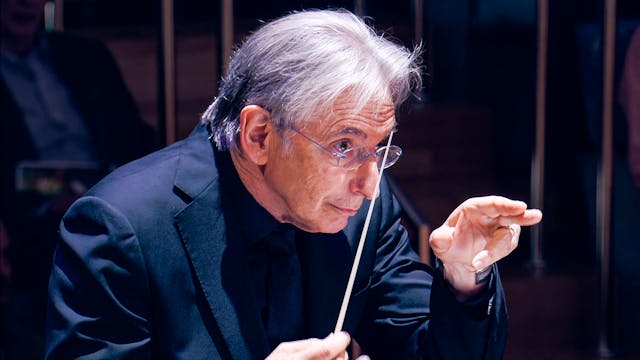NWS Alum Chad Goodman leads the Fellows in an explosive performance of Beethoven's ode to revolution, the Overture to Egmont. Enjoy this memorable moment from the opening concert of our 2019-2020 season!
Beethoven longed to be an opera composer, and yet it proved to be the most frustrating aspect of his career. In the period when his only opera, Leonore, sat dormant—it was soon revised for the second time and reintroduced as Fidelio—Beethoven agreed to provide incidental music for an 1810 revival of Egmont, a play by Johann Wolfgang von Goethe. The drama, set in the 16th century, followed the tribulations of the Count of Egmont, who was convicted of treason and executed after he protested the Spanish occupation in his native Flanders. It was timely fare for Vienna, still reeling from the French occupation in 1809, and it gave Beethoven a chance to vent some of his resentment toward Napoleon while advancing his prospects in Vienna’s theater scene.
The Overture to Egmont begins with a severe introduction in the key of F minor, its slow and deliberate phrases punctuated by stout chords. A pulsing accompaniment ratchets up the tension, and then the strings pivot to the fast body of the Overture, reusing a rising and falling motive to unify the two sections. The minor-key drama gives way at the end to major-key triumph in an accelerated tempo, with piccolo, trumpets and timpani reinforcing the militaristic tone.
-- © 2019 Aaron Grad
Originally performed October 12, 2019.
Up Next in Featured Category
-
Britten - The Young Person's Guide to...
Enjoy this exceptional performance of Britten's masterwork from the opening concert of our 2018 season. MTT breathes new life into this seminal work with the help of the New World Symphony Fellows.
Benjamin Britten had a precocious start in music, studying piano and viola and composing hundreds ...
-
Fauré - Suite from Pelléas et Mélisande
In his early 50s, Gabriel Fauré finally began to enjoy the recognition at home in France and abroad that had eluded him during his long decades working in obscurity as an organist, choirmaster and piano teacher. He began to teach composition at the Paris Conservatory, and he cultivated patrons in...


1 Comment